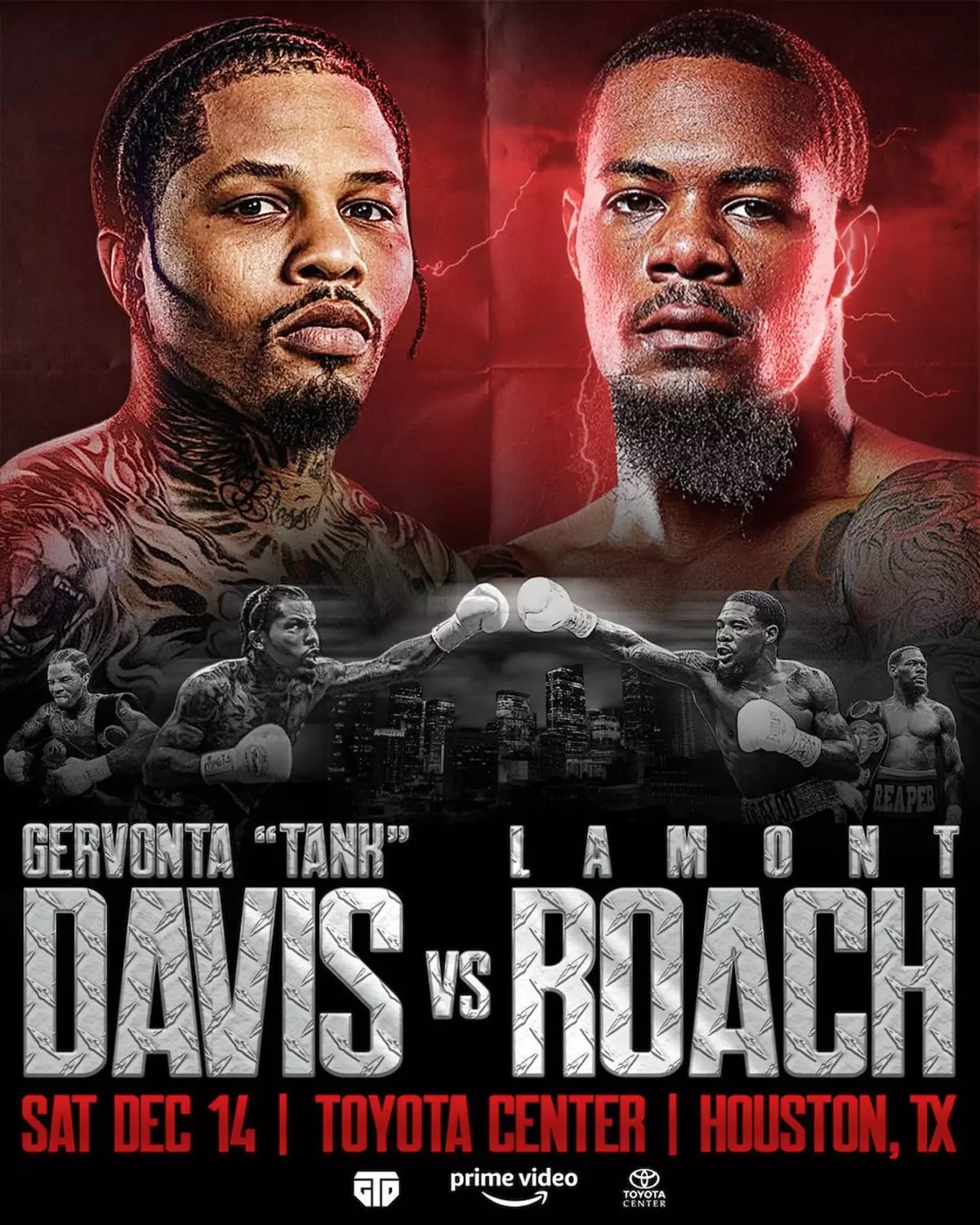In the world of boxing, opinions can be as polarized as the outcomes of the fights themselves. The upcoming bout between Gervonta “Tank” Davis and Lamont Roach on December 14th at the Toyota Center in Houston, Texas, has ignited debates among fans, analysts, and boxing insiders alike. Coach Stephen Edwards has taken a stance that deviates from the prevailing narrative, suggesting that the fight should not be perceived as a mere cherry-pick by Davis. While Edwards does not see Roach as a serious threat to Davis, his views invite deeper questioning about what constitutes a “cherry-pick” in professional boxing.
The criticism surrounding Davis’s choice to fight Roach stems from several factors that critics highlight to assert their perspective. First and foremost, Roach’s lack of a significant ranking in the lightweight category raises eyebrows. His record—25 wins, 1 loss, and 1 draw—appears respectable at a glance, but a closer look reveals a series of questionable matchups against lesser-known opponents. This creates the impression that Davis, holding a dominant record of 30 wins and no losses, is opting for a fight that poses minimal risk while maximizing his chances of retaining his title.
Critics have also pointed to Davis’s lengthy career, spanning 11 years, which they argue has been marked by an abundance of relatively weak opposition. This is not merely about Roach; it illustrates a broader pattern in which fans feel Davis has repeatedly evaded matchups with top-tier fighters such as Teofimo Lopez, Devin Haney, and Shakur Stevenson. The boxing community’s weariness comes from observing a champion too frequently navigating around potentially dangerous opponents, resulting in a narrative that Davis’s victories might be overinflated rather than truly reflective of his skill.
The crux of the cherry-pick discussion lies in the promotional strategies surrounding boxers like Davis. Edwards suggests that the soaring expectations surrounding Davis contribute to the perception of Roach as weak competition. Fans envision Davis facing formidable opponents, and when that expectation is not met, any fight he takes—regardless of how competitive it might be—is labeled as a cherry-pick.
The role of management becomes crucial as they curate fight opportunities that are not just safe but also commercially viable. Critics argue that such matchmaking undermines the integrity of the sport. The idea that a fighter’s legacy may be defined by the quality of adversaries faced cannot be overlooked. If Davis were to engage in high-stakes battles that fulfill fan expectations, the perceived quality of his victories would likely shift dramatically.
The Psychological Factor in Boxing
Boxing is not solely a physical contest; it is equally about strategy, psychology, and perceptions. The mindset of fighters impacts outcomes and performance in the ring. Edwards’s belief that Roach is not a viable contender reflects his understanding of the intricacies at play. This viewpoint is somewhat dubious, given that in the realm of sports, history is rife with surprises—all it takes is one misstep. The perception of an “easy fight” can often lead to unexpected outcomes, which adds layers of unpredictability that engage fans.
Davis’s career, while significantly enriched by his incredible punching power, occasionally leaves much to be desired in terms of showcasing boxing fundamentals. Fans who have witnessed him struggle against roadblocks put up by lesser opponents like Rolly Romero and Isaac Cruz have reason to question whether Davis’s abilities extend beyond the knockouts. It begs the question: is he a brilliant puncher or an underwhelming strategist?
A Call for Accountability
As the Gervonta Davis vs. Lamont Roach fight approaches, it becomes imperative for fighters, promoters, and boxing organizations to recognize the responsibility they bear. The narratives shaped by their choices impact the sport as a whole, affecting fan engagement and trust. If boxing is to thrive, there must be an earnest commitment to facilitate competitive bouts that not only enhance reputations but also better serve the boxers’ legacies. Only then can the sport regain the quality of matchups that fans crave and deserve.
While coach Stephen Edwards’s arguments hold merit, the overwhelming sentiment in the boxing community suggests a far deeper issue: a systemic reluctance to embrace high-stakes competition. As the bout date nears, fans will remain watchful, eager to see if any semblance of accountability emerges from this unyielding fistic landscape.

